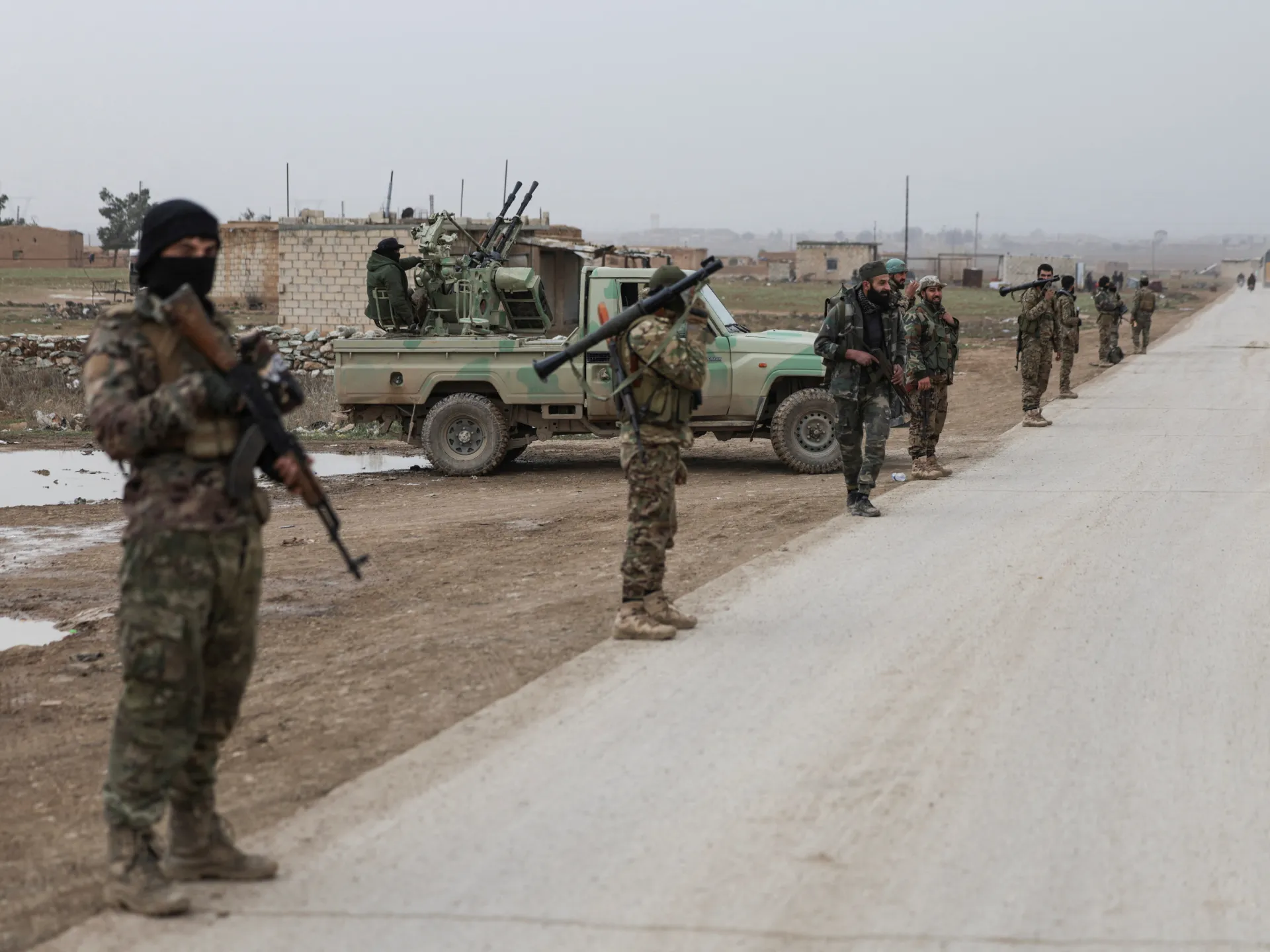Syrian army takes over al-Shaddadi base after US withdrawal | Military News
The move, in coordination with the US, is the latest implementation of the ceasefire agreement with Kurdish-led forces.
Published On 15 Feb 2026
The Syrian army has taken over the al-Shaddadi military base in the northeast of the country following the withdrawal of United States troops, as part of a ceasefire arrangement with the Kurdish-led Syrian Democratic Forces (SDF).
Syria’s Ministry of Defence announced on Sunday that “forces of the Syrian Arab Army have taken over the al-Shaddadi military base in the Hasakah countryside following coordination with the American side”.
The US had been operating in al-Shadaddi since 2016, after Kurdish-led forces seized it from ISIL (ISIS). On Thursday, the Syrian army also took control of the US base of al-Tanf, near the border with Iraq and Jordan.
US Secretary of State Marco Rubio told reporters that the implementation of the ceasefire agreement was “headed in a positive direction”.
“There’s been some days that have been very concerning, but we like the trajectory,” he said. “We have to keep it on that trajectory. We’ve got good agreements in place. The key now is implementation, and we’ll be very involved in that regard.”
He noted that similar agreements needed to be reached with the Druze, Bedouin and Alawite communities in the country.
“We think that outcome, as difficult as it’s been, is far better than the Syria that would have been broken up into eight pieces, with all kinds of fighting going on, all kinds of mass migration, so we feel very positive about that.”
Reduced US presence
Reporting from Aleppo, Al Jazeera correspondent Heidi Pett said residents near al-Shaddadi said in recent days that they were hearing “explosions and seeing fires at the base as Americans destroy remaining material because they’ve been preparing to leave there for a number of weeks”.
“This is part of a broader change in US strategy in the region moving towards partnering directly with the Syrian government,” she said.
The US has been reducing its military footprint in Syria for months, going from 1,500 personnel in July to about 900 currently.
It has been consolidating its ground presence to Tower 22 in Jordan, although it continues to carry out air strikes on ISIL targets in Syria, with US Central Command (CENTCOM) announcing it had conducted 10 air strikes on 30 targets during the February 3-12 period, and killed or captured more than 50 people in two months.
CENTCOM’s commander Admiral Brad Cooper said in a statement that US forces would “remain poised to respond to any [ISIS] threats that arise”.
